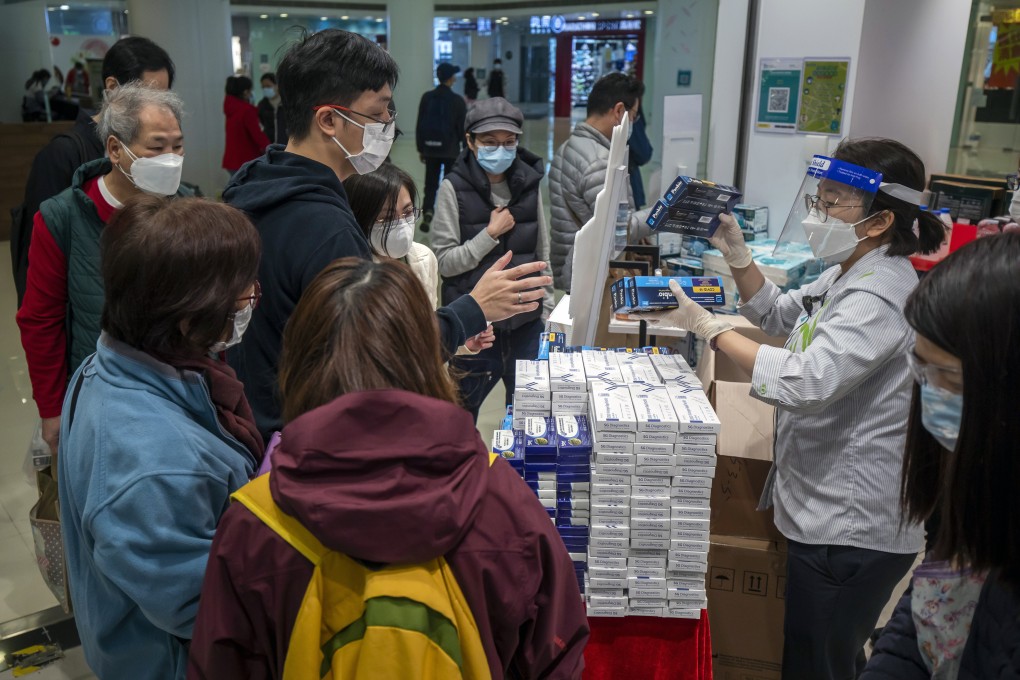Advertisement
Opinion | Hong Kong needs better answers to pandemic-driven surge in plastic waste
- The mountain of single-use plastic waste from Covid-19 has seriously set back sustainable development goals for Hong Kong and the rest of the world
- We need to take account of all the plastic waste when formulating testing, quarantine and mask policies, build effective waste management systems and recycle more
Reading Time:3 minutes
Why you can trust SCMP
5

I recently counted seven separate pieces of plastic in a single Covid-19 rapid antigen test (RAT). All school staff, teachers and students are required to take daily RATs, as are elderly care home staff. Every inbound traveller must take 11 RATs and five PCR tests.
More than half a million RATs are taken every day in Hong Kong, generating more than 3.5 million pieces of plastic from the test kits. In April this year alone, 60 million RAT kits and 60 million KN95 masks were distributed to the city’s 3 million households. The numbers boggle the mind.
It is no wonder the Covid-19 pandemic is also known as the “plastic pandemic” as the single-use plastic waste generated is truly astounding. Why the love of plastics? They have an excellent strength-to-weight ratio and are durable and inexpensive, but where does all the waste go? For plastics that are not appropriately disposed of and recycled, it becomes mismanaged waste that is discharged into the environment.
Advertisement
According to Hong Kong-based marine conservation organisation OceansAsia, around 52 billion disposable face masks were produced globally in 2020. By the end of that year, an estimated 1.6 billion disposable masks made their way into the oceans – that is more than 4 million per day. The throwaway mask pollution in the first year of the pandemic was equal to 7 per cent of the Great Pacific Garbage Patch, a mass of plastic debris that floats in the Pacific Ocean.
Face masks are commonly made of polypropylene, which breaks up into microplastics and is eaten by fish and marine life, getting into our food supply. It is estimated that the 2020 mask pollution will take about 450 years to decompose while in the ocean.
A more recent report from November 2021 by researchers from Nanjing University and the University of California San Diego was even more grim. They found that 193 countries had generated more than 8 million tonnes of pandemic-associated plastic waste through to August 2021. This included personal protective equipment, plastic gloves, masks, face visors, packaging and so on. More than 70 per cent of the global discharge was from hospital waste.
Advertisement
Advertisement
Select Voice
Choose your listening speed
Get through articles 2x faster
1.25x
250 WPM
Slow
Average
Fast
1.25x

